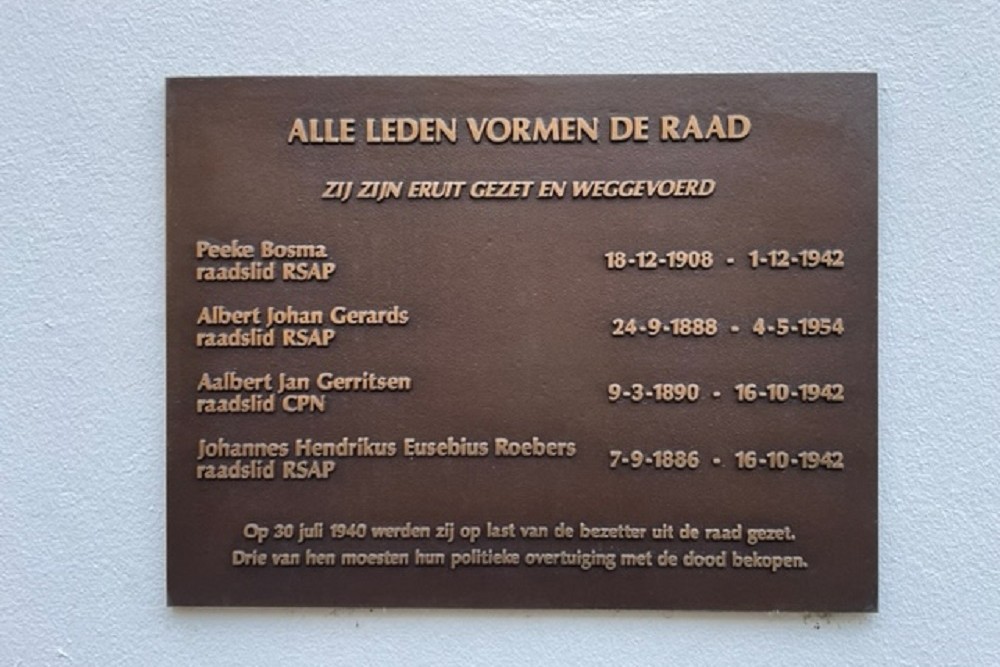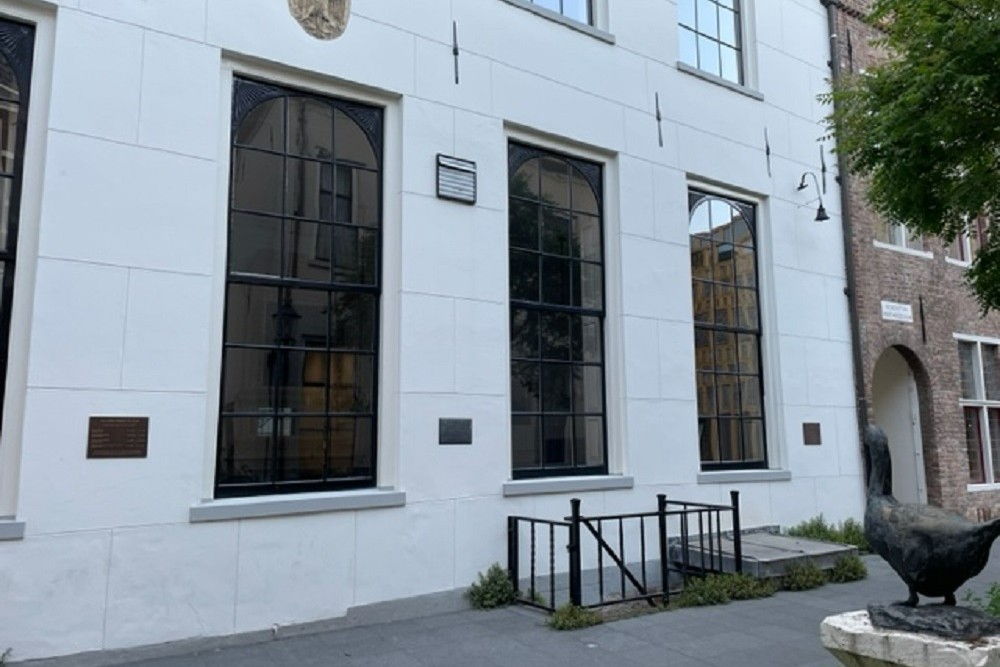Memorial Removed Councel Members
On July 20, 1940, Seyss-Inquart, the Reichskommissar of the Netherlands, placed the political parties with a Marxist origin under the supervision of NSB member Rost van Tonningen. In fact, this meant the dissolution of the Revolutionary Socialist Workers' Party (RSAP) and the Communist Party of the Netherlands (CPN). The people's representatives of these parties in the various elected bodies, such as municipal councils, were excluded from participation.
On July 29, 1940, the provincial commissioner, as the King's commissioner was then called, sent a letter to the mayor of Deventer. This letter stated that the council members of the CPN and the RSAP were no longer allowed to participate in the council work. This meant that Pé (Peeke) Bosma (RSAP), Albert (Albert Johan) Gerards (RSAP), Aalbert Jan Gerritsen (CPN) and Johan (Johannes Hendrikus Eusebius) Roebers (RSAP) were removed from the council.
On June 25, 1941, early in the morning, the four former council members, together with ten other members of the RSAP and CPN, were taken from their homes by the Deventer municipal police by order of the German authorities. Almost simultaneously, more than four hundred communists, revolutionary socialists, anarchists and trade unionists were arrested throughout the Netherlands. The initiative for this action came from Rauter, the highest SS and police official. In Overijssel, the SD in Enschede coordinated the action. In the early evening of that day, the detainees were deported from Deventer to Camp Schoorl. In the late summer and autumn of that year they were transferred to the Polizeiliches Durchgangslager Amersfoort.
Aalbert Jan Gerritsen and Johan Roebers were executed with thirteen others in Woudenberg on 16 October 1942 as a reprisal for the sabotage actions and railway attacks in Deventer and the surrounding area and in Twente.
After camp Amersfoort, Pé Bosma stayed in the Neuengamme and Dachau concentration camps. From Dachau he was taken to Schloss Hartheim in Alkhoven near Linz on December 1, 1942. There he was gassed immediately upon arrival.
Albert Gerards was transferred to Sint-Michielsgestel in September 1942. In mid-November 1943 he was unexpectedly released. He survived the war.
Do you have more information about this location? Inform us!
Source
- Text: Johan van der Veen
- Photos: Bas Sjoerts
Nearby
Point of interest
Monument
- Memorial Canadian Scottish Regiment - Deventer
- Resistance Memorial Deventer - Deventer
- Memorial Royal Winnipeg Rifles - Deventer
Cemetery
- Jewish War Grave Deventer - Deventer
- Collective War Belgian Soldiers Deventer - Deventer
- Dutch War Graves Deventer - Deventer
Remembrance Stone
- Stumbling Stone Assenstraat 7 - Deventer
- Stumbling Stone Hofstraat 5 (destijds Hofstraat 12) - Deventer
- Stumbling Stones Hofstraat 12 (former Hofstraat 7) - Deventer






